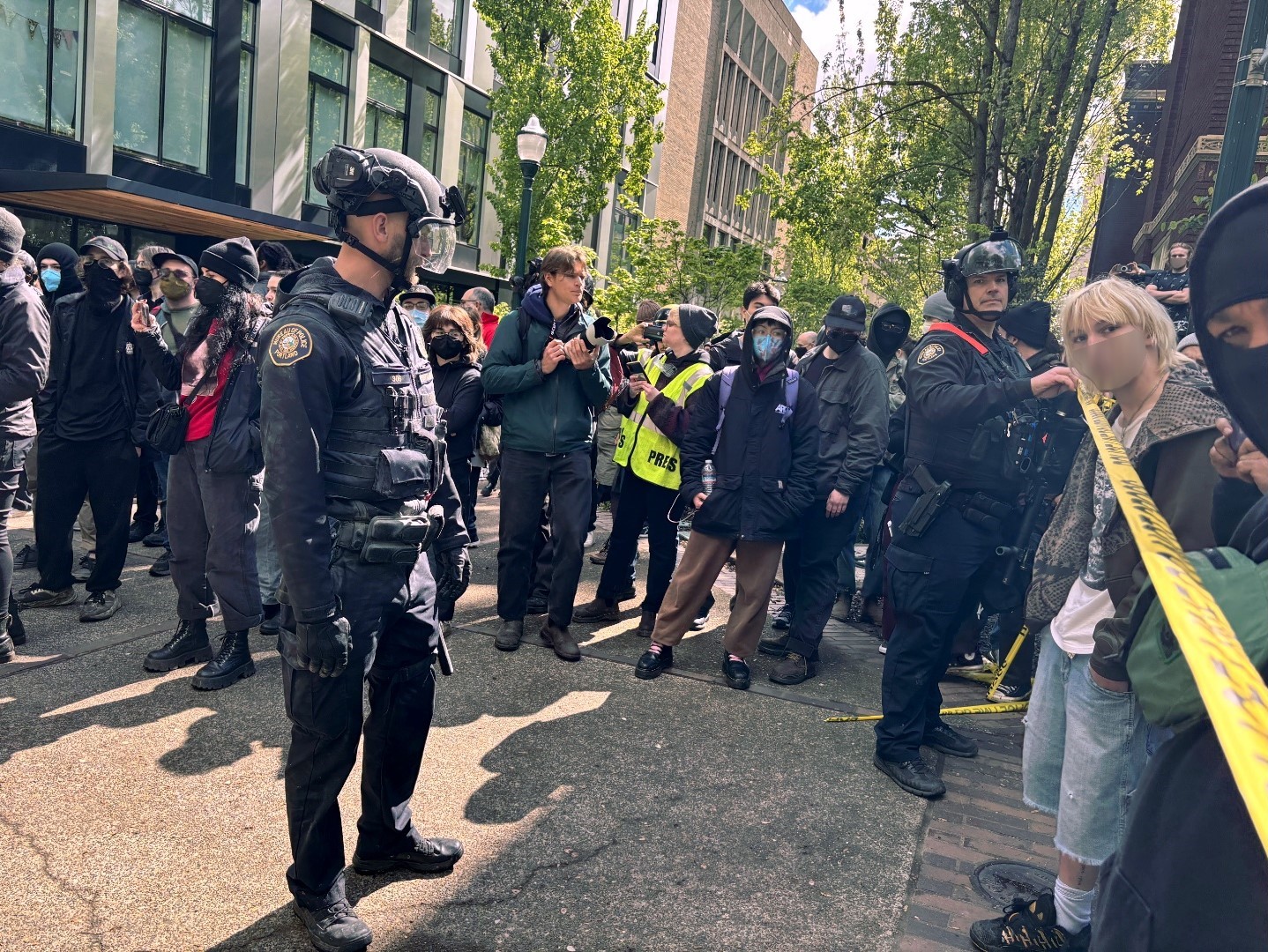A post-war harder than war?
As U.S. troops surround Baghdad, plans are being made for the next Iraqi government. Made, that is, by U.S. officials, who are waiting in Kuwait to enter Baghdad.
Few Americans are aware of the enormous task to which the Bush administration is committed once the war ends. The president has pledged to rebuild Iraq and bring democratic institutions to the Iraqi people.
“Achieving liberal democracy in Iraq is a principal objective of the Bush administration’s campaign against Saddam,” writes William Kristol, intellectual guru of the neo-conservative movement and editor of the Weekly Standard. That is a breathtaking goal to set for a country that has never known democracy, in a region pulsing with anti-Americanism. It means the postwar struggle will be harder than the war.
Few in the region believe Bush is serious about seeking democracy in Iraq. Many foreign journalists cite a 1996 paper, widely circulated on the Internet, called “A Clean Break: A New Strategy for Securing the Realm.” Written for an Israeli think tank, it advises the overthrow of Saddam Hussein. The authors include Douglas Feith, the No. 3 at the Pentagon who oversees the plans for Iraqi reconstruction, along with Pentagon adviser Richard Perle, a driving force behind the Iraq war.
The goal, says the report, would be to change the geopolitics of the region, squeeze Syria, curb Iran and end land-for-peace talks with the Palestinians.
I happen to believe the president does think America has a mission to democratize the Iraqis. But I’m not sure he realizes what that means.
One need only focus on the U.S. Defense Department operation being run out of a row of beachside villas in Kuwait. There, several hundred American officials, led by retired Army Gen. Jay Garner, are preparing to run Iraq once Saddam falls, providing humanitarian assistance to Iraq and reconstructing the country. Few of the Americans have any hands-on experience in Iraq.
These officials will direct Iraq’s government ministries, and take charge of everything from media to trade to foreign affairs. Reportedly, Pentagon hawks would like to put former CIA director James Woolsey in charge of the Ministry of Information.
Americans are supposed to clean out layers of Saddam’s Baath Party officials from Iraq’s huge bureaucracy, remake Iraq’s army, and reshape the Iraqi education system. One contract being tendered by the U.S. Agency for International Development calls for bids to turn around Iraq’s schools in a year.
Oh, yes – the Defense Department also wants to manage (temporarily) the Iraqi oil industry, which is supposed to fund the reconstruction. According to the Washington Post, the administration plans to put a senior Americal oil executive in charge of exploration and production. Nothing would convince the conspiracy theorists faster that the White House is out for Iraqi oil.
But all that reconstruction work is the easy part. The hardest part will be figuring out how to set up an interim Iraqi political authority to which the Americans can gradually shift power. It is imperative that this be done soon.
Iraqis have never had democratic institutions. They have no experience with pluralism, or letting all ethnic groups share the pie. They are used to a strongman in Baghdad, but there is no Iraqi equivalent of a Nelson Mandela or Afghan Hamid Karzai to wean them from dictator-dependence. The administration is still bitterly divided over which Iraqis in or outside the country should get the nod for an interim government.
There is a catch-22 quality to all this American planning. In order to achieve a fraction of the Bush goals for Iraqi renewal, Americans will have to maintain controls and military security for years as in postwar Japan. But Iraq – and the Middle East – won’t tolerate a long occupation. As Iraq expert Phebe Marr testified to the Senate Foreign Relations Committee, “To get real political and social change … will take time. But the longer we stay, the more we risk generating national resentment and opposition.”
So far, the Defense Department seems committed to keeping the United Nations out of this project, except for a little humanitarian assistance. That leaves the United States responsible for the outcome and the funding. I wonder how many Americans know what their country is taking on.
Trudy Rubin is a columnist and editorial-board member for the Philadelphia Inquirer.




